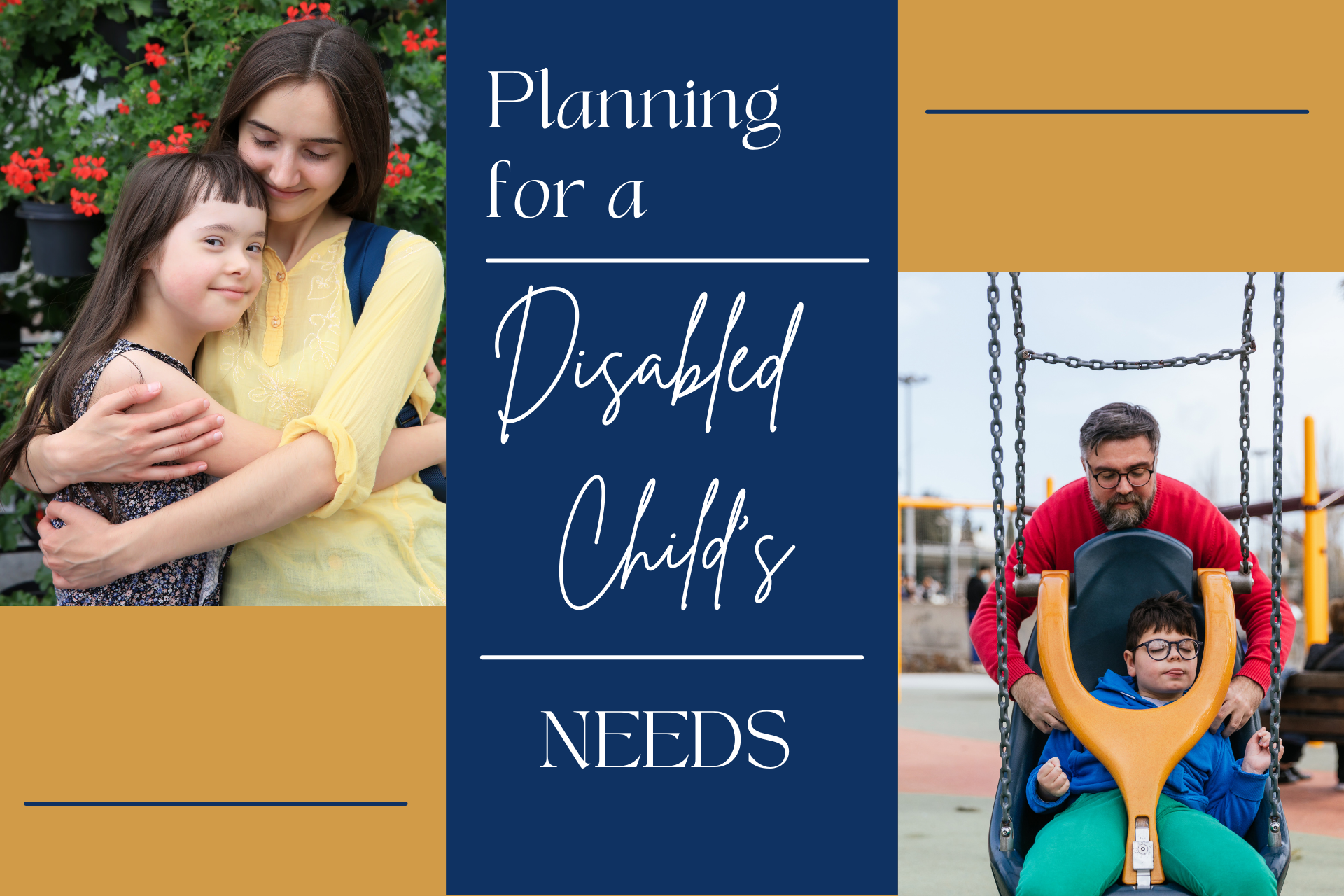Planning for a Disabled Child's Needs

Planning for a disabled child takes special consideration, especially in terms of estate planning. To be sure your child is cared for the way you would like, you need to get your affairs in order. By following the steps outlined below and consulting with a qualified professional who can help you design a plan that meets your unique situation, you can be assured your child will be well cared for if you die or become incapacitated.
Step 1. Create separate files for yourself, your spouse/partner and your child.
Each file should include the following:
- Birth certificate
- Social Security card
- Medicare, Medicaid information
- Other health and long-term care insurance information
- Banking information
- Copies of legal documents such as a will, health care directive and power of attorney
- Life, automobile and other insurance policies
- Deeds and mortgage documents
- Marriage, divorce and death certificates (as relevant)
- Military service records
- Titles to real estate, automobiles and other property.
- Information regarding funeral arrangements.
- List of bank and brokerage accounts, including account numbers and detailed information about assets and liabilities
- List of usernames and passwords
- List of doctors, medications and allergies; details regarding medical history, etc.
- List of emergency contacts, including contact information for the individual you wish to care for your disabled child as well as the counselors, mental health professionals and others who work with her/him
- List of professional advisers (e.g., accountant, attorney, financial adviser, insurance broker)
Step 2. Write a letter of intent.
While a letter of intent is not a binding legal document, it is a valuable road map for outlining the life you would like your child to live. The letter of intent should outline your child's daily, weekly and monthly schedules as well as her/his likes and dislikes. It should also list the child's medications and allergies, etc. In addition, the letter should name the people you would like to be part of your child's life as well as anyone you would like to keep your child away from. The letter of intent should be updated annually and kept with your other estate planning documents.
Step 3. Begin the financial planning process.
Planning for funding your child's future needs is another important aspect of planning for her/his future. Your personal financial circumstances will dictate your planning, but it is important to consider these items:
- Government benefits may be an important part of your plan. Be sure to document what and how much the child receives as well as how the funds are used. Other aspects of your financial plan may affect these benefits, so be clear about the parameters you need to work within.
- Be sure your will names a trustee and a guardian.
- Create a special needs trust. Once it is created, you can make the trust the beneficiary of your life insurance policy, etc., without impacting her/his government benefits.
- Establish an Achieving a Better Life Experience account, which is a tax-advantaged savings account for individuals with disabilities and their families.). These contributions generally are not tax deductible for federal tax purposes, but some states allow a deduction.
Step 4. Plan for when your child becomes an adult.
Children become legal adults when they turn 18. This status comes with responsibilities and privileges such as the right to make their own health and financial decisions. Not all disabled children are able to assume these responsibilities, which makes it important for you to consider options such as legal guardianship or power of attorney. If the child does not consent to your retaining power over her/his decisions, a court may have to decide.
This article contains a brief overview of some items that must be considered if you have a disabled child. The goal is to have a plan in place that will ensure your child has the kind of life you wish for her/him in the event you die or become incapacitated. The best thing you, as the child's parent, can do is consult a tax and estate planning professional, like Nash Bean Ford and Brown, LLP, who can help strategize a plan that considers the child's unique issues as well as your financial situation. Give us a call today at 309-944-2188 for more information or to set up your free estate planning consultation!












Share On: